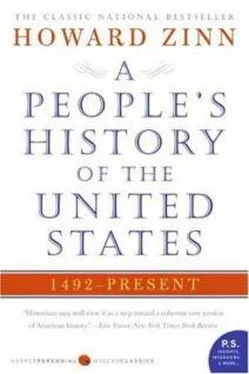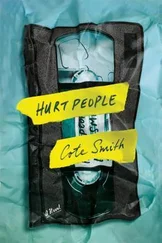Howard Zinn - A People
Здесь есть возможность читать онлайн «Howard Zinn - A People» весь текст электронной книги совершенно бесплатно (целиком полную версию без сокращений). В некоторых случаях можно слушать аудио, скачать через торрент в формате fb2 и присутствует краткое содержание. Издательство: Harper-Collins, Жанр: Фэнтези, на английском языке. Описание произведения, (предисловие) а так же отзывы посетителей доступны на портале библиотеки ЛибКат.
- Название:A People
- Автор:
- Издательство:Harper-Collins
- Жанр:
- Год:неизвестен
- ISBN:нет данных
- Рейтинг книги:4 / 5. Голосов: 1
-
Избранное:Добавить в избранное
- Отзывы:
-
Ваша оценка:
- 80
- 1
- 2
- 3
- 4
- 5
A People: краткое содержание, описание и аннотация
Предлагаем к чтению аннотацию, описание, краткое содержание или предисловие (зависит от того, что написал сам автор книги «A People»). Если вы не нашли необходимую информацию о книге — напишите в комментариях, мы постараемся отыскать её.
A People — читать онлайн бесплатно полную книгу (весь текст) целиком
Ниже представлен текст книги, разбитый по страницам. Система сохранения места последней прочитанной страницы, позволяет с удобством читать онлайн бесплатно книгу «A People», без необходимости каждый раз заново искать на чём Вы остановились. Поставьте закладку, и сможете в любой момент перейти на страницу, на которой закончили чтение.
Интервал:
Закладка:
The rights of gay and lesbian Americans had come vividly to the forefront in the Seventies with radical changes in ideas about sexuality and freedom. The gay movement then became a visible presence in the nation, with parades, demonstrations, campaigns for the elimination of state statutes discriminating against homosexuals. One result was a growing literature about the hidden history of gay life in the United States and in Europe.
In 1994, there was a Stonewall 25 march in Manhattan, which commemorated an event homosexuals regarded as a turning point: twenty-five years earlier, gay men fought back vigorously against a police raid on the Stonewall bar in Greenwich Village. In the early nineties, gay and lesbian groups campaigned more openly, more determinedly, against discrimination, and for more attention to the scourge of AIDS, which they claimed was being given only marginal attention by the national government.
In Rochester, New York, a local campaign achieved an unprecedented decision barring military recruiters from a school district because of the Defense Department discrimination against gay soldiers.
The labor movement in the eighties and nineties was considerably weakened by the decline of manufacturing, by the flight of factories to other countries, by the hostility of the Reagan administration and its appointees on the National Labor Relations Board. Yet organizing continued, especially among white collar workers and low-income people of color. The AFL–CIO put on hundreds of new organizers to work among Latinos, African-Americans, and Asian-Americans.
Rank-and-file workers in old, stagnant unions began to rebel. In 1991, the notoriously corrupt leadership of the powerful Teamsters Union was voted out of office by a reform slate. The new leadership immediately became a force in Washington, and took the lead in working for independent political coalitions outside the two major parties. But the labor movement as a whole, much diminished, was struggling for survival.
Against the overwhelming power of corporate wealth and governmental authority, the spirit of resistance was kept alive in the early nineties, often by small-scale acts of courage and defiance. On the West Coast, a young activist named Keith McHenry and hundreds of others were arrested again and again for distributing free food to poor people without a license. They were part of a program called Food Not Bombs. More Food Not Bombs groups sprang up in communities around the country.
In 1992, a New York group interested in revising traditional ideas about American history received approval from the New York City Council to put up thirty metal plaques high on lampposts around the city. One of them, placed opposite the Morgan corporate headquarters, identified the famous banker J.P. Morgan as a Civil War "draft dodger." In fact, Morgan had avoided the draft and profited in business deals with the government during the war. Another plaque, placed near the Stock Exchange, portrayed a suicide and carried the label "Advantage of an Unregulated Free Market."
The general disillusionment with government during the Vietnam years and the Watergate scandals, the exposure of anti-democratic actions by the FBI and the CIA, led to resignations from government and open criticism by former employees.
A number of former CIA officials left the agency, and wrote books critical of its activities. John Stockwell, who had headed the CIA operation in Angola, resigned, wrote a hook exposing the CIA's activities, and lectured all over the country about his experiences. David MacMichael, a historian and former CIA specialist, testified at trials on behalf of people who had protested government policy in Central America.
FBI Agent Jack Ryan, a twenty-one-year veteran of the bureau, was fired when he refused to investigate peace groups. He was deprived of his pension and for some time had to live in a shelter for homeless people.
Sometimes the war in Vietnam, which had ended in 1975, came back to public attention in the eighties and nineties through people who had been involved in the conflicts of that day. Some of them had since made dramatic turnabouts in their thinking. John Wall, who prosecuted Dr. Benjamin Spock and four others in Boston for «conspiring» to obstruct the draft, showed up at a dinner honoring the defendants in 1994, saying the trial had changed his ideas.
Even more striking was the statement by Charles Hutto, a U.S. soldier who had participated in the atrocity known as the My Lai massacre, in which a company of American soldiers shot to death women and children by the hundreds in a tiny Vietnamese village. Interviewed in the eighties, Hutto told a reporter:
I was nineteen years old, and I'd always been told to do what the grown-ups told me to do…. But now I'll tell my sons, if the government calls, to go, to serve their country, but to use their own judgment at times… to forget about authority… to use their own conscience. I wish somebody had told me that before I went to Vietnam. I didn't know. Now I don't think there should be even a thing called war… cause it messes up a person's mind.
It was this legacy of the Vietnam war-the feeling among a great majority of Americans that it was a terrible tragedy, a war that should not have been fought-that plagued the Reagan and Bush administrations, which still hoped to extend American power around the world.
In 1985, when George Bush was Vice-President, former Defense Secretary James Schlesinger had warned the Senate Foreign Relations Committee: "Vietnam brought a sea change in domestic attitudes… a breakdown in the political consensus behind foreign policy.…"
When Bush became President, he was determined to overcome what came to be called the Vietnam syndrome-the resistance of the American people to a war desired by the Establishment. And so, he launched the air war against Iraq in mid-January 1991 with overwhelming force, so the war could be over quickly, before there was time for a national antiwar movement to develop.
The signs of a possible movement were there in the months of the prewar buildup. On Halloween, 600 students marched through downtown Missoula, Montana, shouting "Hell no, we won't go!" In Shreveport, Louisiana, despite the Shreveport Journal 's front-page headline: "Poll Favors Military Action," the story was that 42 percent of the respondents thought the U.S. should "initiate force" and 41 percent said "wait and see."
The November 11, 1990, Veterans Parade in Boston was joined by a group called Veterans for Peace, carrying signs: "No More Vietnams. Bring 'Em Home Now" and "Oil and Blood Do Not Mix, Wage Peace." The Boston Globe reported that "the protesters were greeted with respectful applause and, at some places, strong demonstrations of support by onlookers." One of those onlookers, a woman named Mary Belle Dressier, said: "Personally, parades that honor the military are somewhat troublesome to me because the military is about war, and war is troublesome to me."
Most Vietnam veterans were supporting military action, but there was a strong dissident minority. In one survey that showed 53 percent of the veterans polled saying they would gladly serve in the Gulf War, 37 percent said they would not.
Perhaps the most famous Vietnam veteran, Ron Kovic, author of Born on the Fourth of July , made a thirty-second television speech as Bush moved toward war. In the appeal, broadcast on 200 television stations in 120 cities across the country, he asked all citizens to "stand up and speak out" against war. "How many more Americans coming home in wheelchairs-like me-will it take before we learn?"
That November of 1990, several months into the Kuwait crisis, college students in St. Paul, Minnesota, demonstrated against war. The local press reported:
It was a full-blown antiwar demonstration with mothers pushing kids in strollers, college professors and grade school teachers carrying signs, peace activists bedecked in peace symbols, and hundreds of students from a dozen schools singing, beating drums and chanting, "Hey, hey, ho ho, we won't fight for Amoco."
Читать дальшеИнтервал:
Закладка:
Похожие книги на «A People»
Представляем Вашему вниманию похожие книги на «A People» списком для выбора. Мы отобрали схожую по названию и смыслу литературу в надежде предоставить читателям больше вариантов отыскать новые, интересные, ещё непрочитанные произведения.
Обсуждение, отзывы о книге «A People» и просто собственные мнения читателей. Оставьте ваши комментарии, напишите, что Вы думаете о произведении, его смысле или главных героях. Укажите что конкретно понравилось, а что нет, и почему Вы так считаете.












